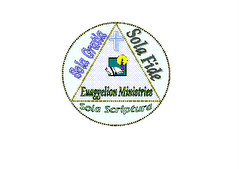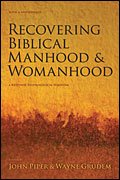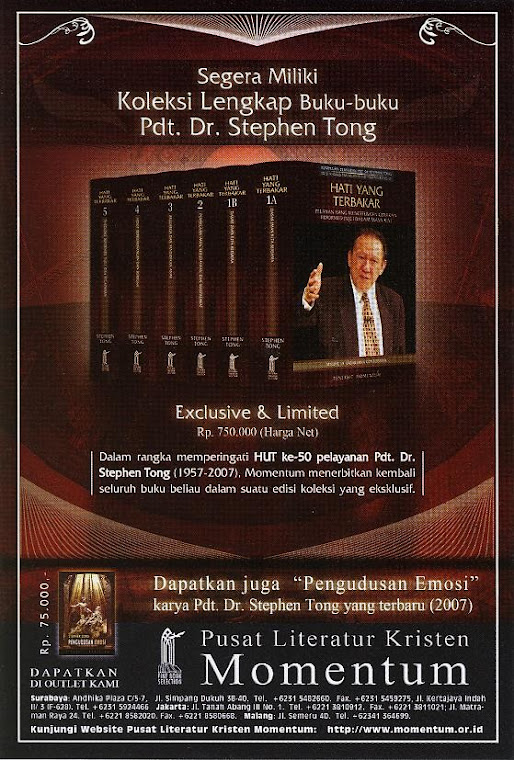24 May 2015
Book Description-321: "BUDDHISM: A Christian Exploration and Appraisal" (Prof. Keith E. Yandell, Ph.D. & Prof. Harold Netland, Ph.D.)
Buddhism is a missionary religion which influences Western world today. Some Christians in Western world convert to Buddhism. What is Buddhism? What did Buddha teach? How does Christian view this religion?
Get the answer in the:
Book
BUDDHISM:
A Christian Exploration and Appraisal
by:
Prof. Keith E. Yandell, Ph.D. and
Prof. Harold Netland, Ph.D.
Publisher: InterVarsity Press, Downers Groove, 2009
In his book, Dr. Keith E. Yandell and Dr. Harold Netland explains all of Buddhism based on the first source. In the first chapter, they explain the history of early Buddhism which is started on Gautama and his teachings. In this chapter, they explain about the growth of Buddhism and the origin of Theravada Buddhism.In the next chapter, they explain the expanding growth of Buddhism in eastern world by the influence of Mahayana an Vajrayana Buddhism in China, Japan, etc. In the third chapter, they explain that Buddhism comes to Western world. In the next chapter, they explain aspects of Buddhist doctrine, such as truth, rebirth, karma, and so on. After that, they explain some Buddhist schools and issues in Buddhism. In the final chapter, they differ Buddhism and Christianity and then they lead the readers to accept the Gospel which is higher than the Dharma.
Endorsement:
“This is interfaith dialogue at its best. Netland and Yandell provide a thoughtful undestanding of Buddhism, followed by a careful pressing of internal problems within Buddhism, followed by a constructive summary of real differences between Christianity and Buddhism. They also succeed in establishing the plausibility of Christianity in the light of various possible Buddhist critiques. No reader, Christian or Buddhist, will be left unchallenged by this lucid exposition, critique, and proclamation.”
Prof. Gavin D’Costa, Ph.D.
Professor in Catholic Theology at Bristol University, England who holds Bachelor of Arts (B.A.) in English and Theology from Birmingham University and Doctor of Philosophy (Ph.D.) from Cambridge University, U.K.
“At last we have a book that moves beyond the inaccurate, rather imprecise and sentimental level of so many books about Buddhism and the Christian-Buddhist encounter, and focuses on a serious consideration of Buddhist truth claims. The opening chapters give an acceptable first survey of Buddhism, and include material on dimensions of Buddhism, such as the personalist school and the historical context for the introduction of some rather idiosyncratic forms of Japanese Zen into the West, that are often neglected in popular introductions. It gives enough detail on Buddhist doctrines for one new to the subject to understand what the issues are and engage in a critical yet respectful manner with them. At many points this clearly written and readable book corrects, from the point of view of Buddhism as it has existed in history and in its Asian context, common Western misperceptions of Buddhism. But the really exciting section of this book is the philosophical analysis of key Buddhist doctrines such as not-self and momentariness. Netland and Yandell take Buddhist truth claims seriously, as Buddhists ask us to do, and in their analysis of those claims they make a truly original contribution, pitched at an accessible yet refined level of philosophical sophistication and knowledge of Buddhist doctrines and debates. The book throws down a challenge to Buddhists to clarify what they mean when they make their claims, and to enter into debate in defense of their truth. This philosophical analysis is followed by an outline of some absolutely fundamental differences between Christianity and Buddhism, and Christ and the Buddha. Here we see the basis of a critical Christian theological engagement with Buddhism as a religion. The book challenges Christians to move beyond polite small talk or minimalizing of essential differences that demand choice and commitment, and engage with Buddhists in debating their mutually incompatible claims to (as the Buddhists put it) 'see things the way they really are' regarding God, Jesus Christ, personhood, and our meaning, purpose and destiny. This book shows us (to use another Buddhist expression) 'analytical meditation' at its finest. It is an exciting book that I shall certainly use and recommend to my students. For those Christians and Buddhists who take truth seriously, and understand the significance of reasoning in making crucial choices, Netland and Yandell's book will contribute significantly to setting the agenda for serious dialogue between Christianity and Buddhism for some time to come.”
Prof. Paul Williams, D.Phil.
Emeritus Professor of Indian and Tibetan Philosophy at the University of Bristol, U.K. who earned B.A. from University of Sussex's School of African & Asian Studies and Doctor of Philosophy (D.Phil.) in Buddhist Philosophy from Wadham College, University of Oxford.
“Yandell and Netland have produced a brilliant, clear, engaging introduction to Buddhism that is both sympathetic and critical, highlighting points of convergence with and divergence from Christianity. Their book would be excellent in university courses in philosophy of religion or religious studies, but it would also reward general readers interested in finding both a reliable philosophical guide to Buddhism as well an exploration of Buddhist teaching in relation to Christian faith.”
Prof. Charles Taliaferro, Ph.D.
Department Chair at St. Olaf College, Northfield, MN who earned B.A. from Goddard College; Master of Arts (M.A.) from University of Rhode Island; Master of Theological Studies (M.T.S.) from Harvard University; M.A. and Ph.D. from Brown University.
Biography of the authors:
Prof. Keith E. Yandell, B.A., M.A., Ph.D. is Affiliate Professor of Philosophy at Trinity Evangelical Divinity School, Deerfield, Illinois, U.S.A. He earned B.A. and M.A. from Wayne State University and Ph.D. from Ohio State University, U.S.A. He wrote many books, such as: The Epistemology of Religious Experience (Cambridge University Press, 1994); Philosophy of Religion: A Contemporary Introduction (Routledge, 1999); Basic Issues in the Philosophy of Religion (Allyn and Bacon, 1971); and edited book “Faith and Narrative” (Oxford University Press, 2001.
Prof. Harold A. Netland, B.A., M.A., Ph.D. is Director of the Ph.D. (Intercultural Studies) and Professor of Philosophy of Religion and Intercultural Studies at Trinity Evangelical Divinity School, Deerfield, Illinois, U.S.A. He earned B.A. from Biola University; M.A. and Ph.D. from Claremont Graduate University, U.S.A. Prior to coming to Trinity, Dr. Netland was a missionary educator for nine years in Japan with the Evangelical Free Church of America. Dr. Netland was involved in ministries among university students, assisting in church planting, and teaching at Tokyo Christian University. Dr. Netland’s areas of expertise include religious pluralism, epistemology of religion, apologetics, and missions in East Asia. He and his wife, Ruth, live in Vernon Hills, IL. He wrote many books, such as:
• Dissonant Voices: Religious Pluralism and the Question of Truth (Eerdmans, 1991).
• The Evangelical Dictionary of World Religions (Baker, 2000), associate editor.
• Encountering Religious Pluralism (InterVarsity Press, 2001)
• Globalizing Theology: Belief and Practice in an Era of World Christianity, ed. Craig Ott and Harold Netland (Baker, 2006).
Subscribe to:
Comments (Atom)





